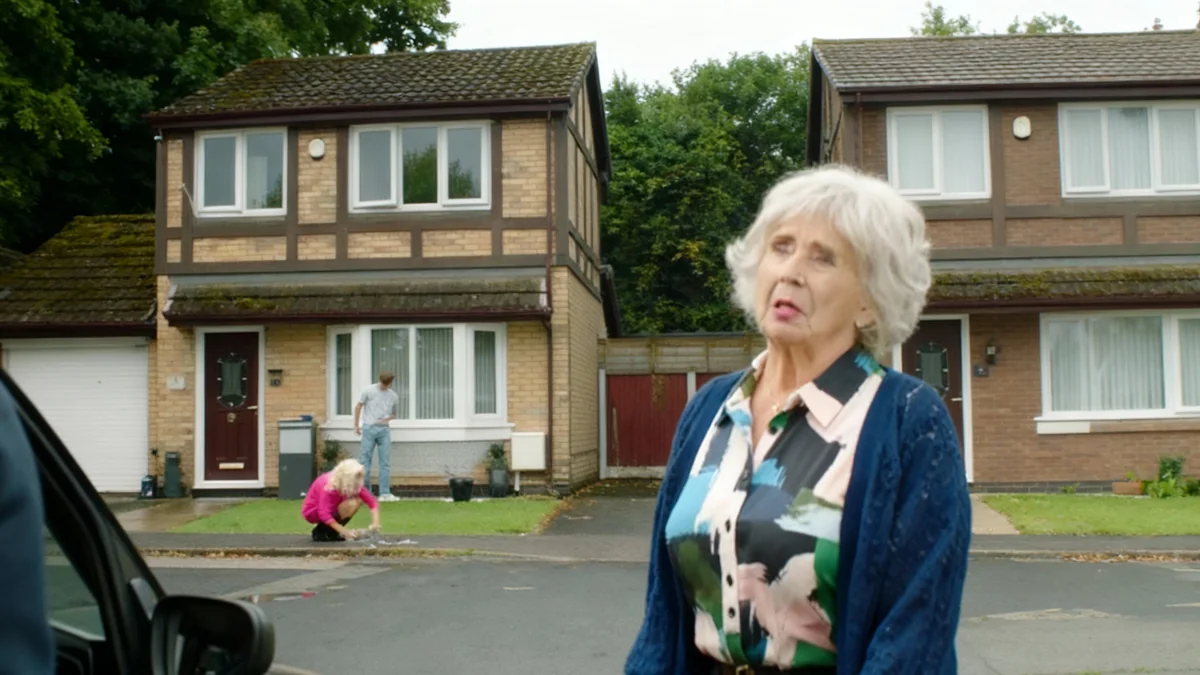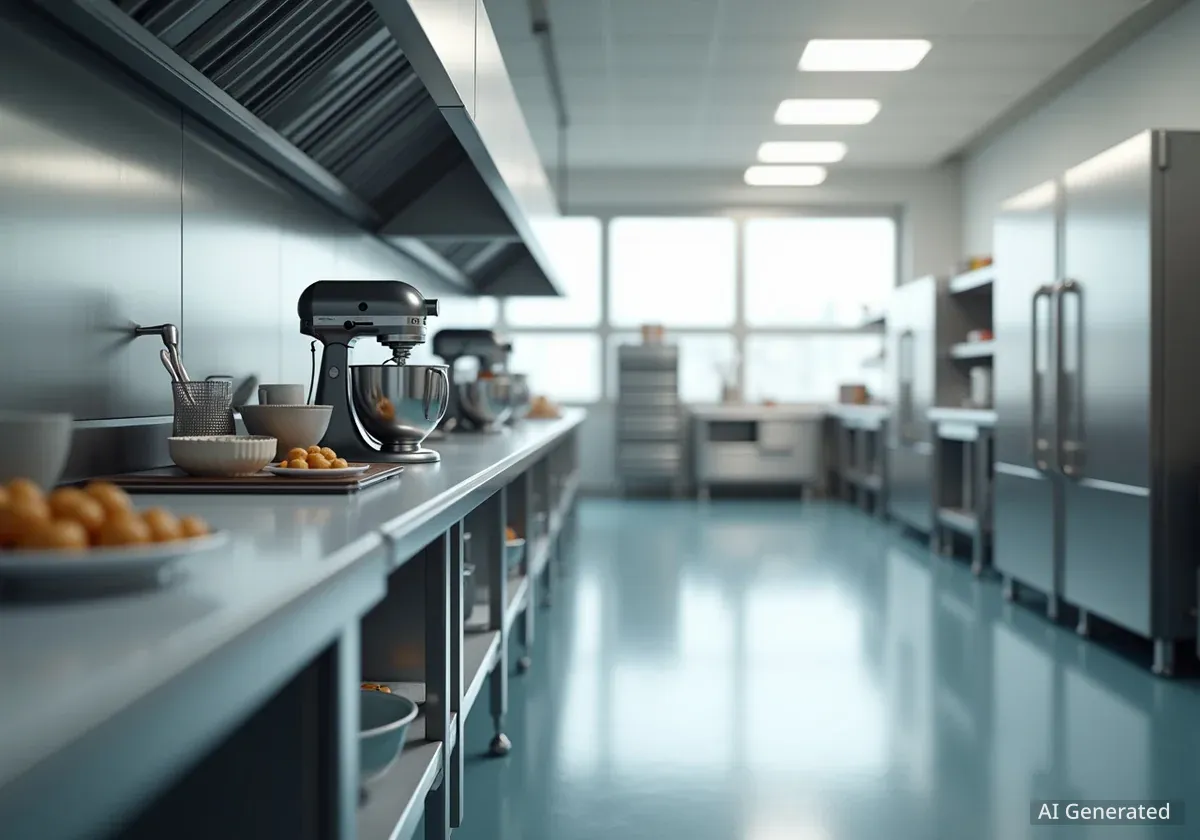In a basement on Jamaica Street, away from the city's main thoroughfares, Hobo Kiosk offers a unique pub experience defined by its eclectic decor and strong sense of community. Operated by husband-and-wife team Delia and Tristan Brady-Jacobs, the bar has become a sanctuary for artists, musicians, and locals seeking genuine connection over a pint of independent beer.
The venue is distinguished by its interior, which resembles a carefully curated collection of memories and objects, each with its own story. This, combined with the owners' welcoming approach, has established Hobo Kiosk as a distinct destination in Liverpool's vibrant hospitality scene.
Key Takeaways
- Hobo Kiosk is a basement bar located on Jamaica Street in Liverpool, known for its unique, bohemian atmosphere.
- It is owned and operated by Delia and Tristan Brady-Jacobs, who aim to foster a welcoming, community-focused environment.
- The decor is highly eclectic, featuring a mix of furniture, art, and memorabilia that gives the space a scrapbook-like feel.
- The bar specializes in beers from local independent breweries and features a jazz soundtrack.
- Hobo Kiosk attracts a diverse clientele, including artists, writers, and musicians, and encourages conversation among patrons.
A Subterranean Retreat on Jamaica Street
Stepping down from the pavement of Jamaica Street into Hobo Kiosk is to enter a different world. The noise of the bustling creative district fades, replaced by the low hum of conversation and the distinct sound of jazz music. The bar occupies a basement space, creating an immediate sense of being in a hidden, intimate location.
This underground setting is central to its identity. It is not a venue designed to attract passing trade with flashy signs, but rather a destination for those in the know. The entrance is unassuming, leading visitors down a staircase into a room that feels more like a private collection or a personal studio than a typical pub.
The Baltic Triangle Context
Hobo Kiosk is situated on the edge of the Baltic Triangle, an area of Liverpool that has undergone significant transformation from a post-industrial landscape to a hub for creative and digital industries. The bar's independent and artistic spirit reflects the character of its neighbourhood, which is home to numerous studios, galleries, and independent businesses.
The atmosphere is intentionally relaxed and unpretentious. The owners have cultivated a space where the focus is on comfort and social interaction, distinguishing it from more commercially polished venues in the city centre.
The Vision of Delia and Tristan Brady-Jacobs
At the heart of Hobo Kiosk are its owners, Delia and Tristan Brady-Jacobs. Their shared history and philosophy are woven into the fabric of the bar. The couple first met in the early 1980s at the Everyman Bistro, a legendary Liverpool institution known for its bohemian and inclusive atmosphere.
This background appears to have heavily influenced their approach. Delia is often described as the anchor of the establishment, personally greeting guests and creating a familiar environment for regulars and newcomers alike. Her ability to remember names and drink orders contributes significantly to the feeling of being in a community space.
Tristan complements this with his own engaging presence, known for his easy-going conversation and humour. Together, they have built a business that prioritizes human connection. Their hands-on management style ensures that the pub's core values of community and authenticity are maintained day in and day out.
"They’ve built a place where community isn’t a slogan - it’s the house policy."
This commitment to genuine hospitality is a recurring theme among patrons, who often cite the owners as a primary reason for their loyalty to the bar.
An Interior Filled with Stories
The decor of Hobo Kiosk is perhaps its most commented-on feature. The interior is a dense collage of objects, furniture, and art that defies any single design classification. It feels as though every item has been personally selected and has a history behind it.
The furniture is a mix of styles and eras, seemingly gathered from various sources yet unified by its collective character. Walls are covered with paintings, signed posters from local musicians, and assorted memorabilia. Lamps, mugs, and other trinkets occupy every available surface, creating a space that invites exploration.
A Living Art Installation
The collection of items is not static. The decor evolves as new pieces are added, making the bar a constantly changing environment. This approach turns the space into something of a living art installation, reflecting the creative community it serves.
This visual richness serves a purpose beyond simple decoration. It acts as a conversation starter, with patrons often discussing the various objects on display. The environment resists the minimalist trends seen in many modern bars, opting instead for a maximalist approach that is both visually stimulating and comforting.
Community and Conversation at its Core
Hobo Kiosk has cultivated a clientele as eclectic as its interior. The bar is a regular meeting spot for a cross-section of Liverpool's creative community, including artists, writers, musicians, and academics. However, it also attracts a wide range of individuals who appreciate its unique atmosphere.
The layout and ambiance are conducive to social interaction. Unlike larger, louder venues, the intimate scale and relaxed volume encourage conversation, not just within groups but between them. It is common for strangers to strike up conversations, a dynamic that the owners actively encourage.
The bar has a set of printed "house rules," but these are not restrictive regulations. Instead, they are gentle guidelines aimed at fostering a positive and respectful social environment, reinforcing the idea that this is a shared space for a community of like-minded people.
- Diverse Clientele: A mix of creatives and locals.
- Social Environment: Designed to encourage interaction.
- House Guidelines: A friendly set of rules to maintain a positive atmosphere.
This focus on fostering connections is what many regulars say sets Hobo Kiosk apart. It is a place where people come not just for a drink, but for the experience of being part of a welcoming and interesting social circle.
Local Brews and a Unique Soundtrack
In keeping with its independent ethos, Hobo Kiosk's drink selection emphasizes quality and locality. The bar offers a carefully chosen range of beers, with a strong focus on products from local and independent breweries. This provides a platform for smaller producers and offers customers a taste of the region's burgeoning craft beer scene.
The selection punches well above its weight for a venue of its size, often featuring rotating taps that ensure there is always something new to try. This commitment to local sourcing extends the bar's community focus from its patrons to its suppliers.
The experience is complemented by the soundtrack, which predominantly features jazz. The free-flowing and improvisational nature of the music aligns perfectly with the bar's unpredictable and creative atmosphere. The music is kept at a level that allows for conversation, serving as a pleasant backdrop rather than an overwhelming presence.
When visitors eventually leave and return to the energy of Jamaica Street, the contrast is clear. Hobo Kiosk exists as a small, strange, and story-filled hideaway. It is a testament to the fact that in an increasingly polished world, there is still a strong appetite for places that are, above all else, genuine.





